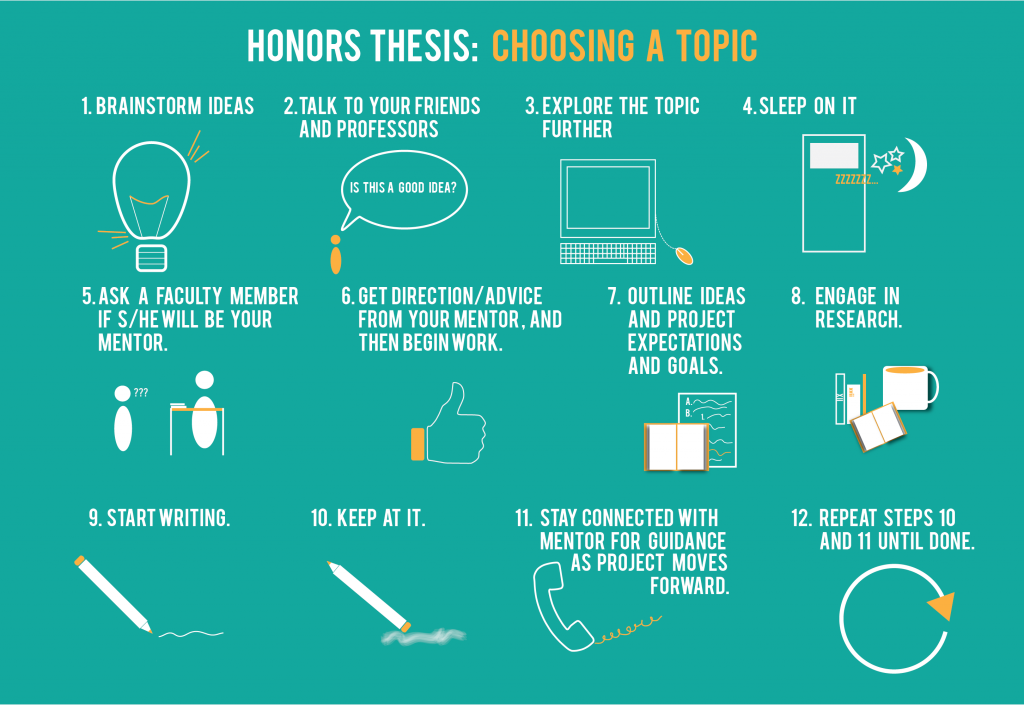It’s hard to pick just one topic for your history research paper. It’s hard to choose a topic that’s feasible enough for your lab report. It can be really difficult to brainstorm an idea for your creative writing class. But we all know our honors thesis is a whole new beast. The word thesis even sounds scary; it covers so much ground that Webster has four definitions for the word. But before you throw yourself into a tizzy, you have to remember that the beautiful thing about your honors thesis is that it is – yours. You’ll get advice from professors and perhaps odd looks from fellow classmates that say “I don’t know what that means,” but it’s your project. It’s your time to become an undergraduate expert in one area of your major.
So, here’s my story: . . . I always knew that I wanted to write something about magazines. I really like them; no, not just for a little relaxation reading – I value the aesthetic, the design. My mother got me interested in magazines initially; she used to go on lots of business trips, so she would buy magazines in the airport to pass the time. When she would return home, she would give me the copies of National Geographic, Better Homes and Gardens and Southern Living. We would sit together, and I would pick out my favorite “thing” on each page – the elementary-school approach to design critique. As I grew up, I began faithfully subscribing to some of the magazines my mom introduced me to, but I also found my own style of magazines that I enjoyed.
There are magazines that I read for the design: Real Simple and Kinfolk. There are magazines I read for the photos: Darling and Anthology. And there are magazines I read for the content: The New Yorker and Oh Comely. So when I started thinking about my thesis, I knew that if I had to spend upwards of one year devoted to a project, I wanted it to be about something I genuinely enjoyed. So, I did just that.
The hardest part of choosing my topic was choosing my topic. I think I mulled over the word “magazine” for far too many days, but I needed more. I needed to zero in on my actual subject, and after spending time just Googling “trends in magazines,” it dawned on me: digital magazines. You know, the future – innovation. I felt so hip and with-it, but it turns out that “digital magazines” isn’t really a topic either; a journalism thesis topic has to be very specific.
Although the topic of digital magazines was my focus, I needed to harness actual variables to study. So I went to Dr. Patsy Watkins, magazine design guru and journalism professor, and had about a 45-minute stream of consciousness conversation with her about why I wanted to write about digital magazines. This is where the real topic choosing began. She began to help me see how I was to go about writing a “thesis” and what sort of variables were involved in a thesis, so I went back to the drawing board.
I started asking myself: What makes digital magazines different than print magazines? Why would someone choose to read a digital magazine instead of a print magazine? In such a digital-focused world, why aren’t digital magazines thriving? After gradually narrowing down my topic of interest, I came to this beautiful realization about my honors thesis. The light bulb in my head lit up, and I was like “Bingo. That’s my topic.” I decided that I would study “interactivity,” the one factor that separates the print magazine from the digital magazine, and in addition to that, I would look at how this new attribute of magazines affects design, readability, and a reader’s motivation for choosing this reading medium.
It sounds intense right? Well, it’s not. This all grew out of reading articles, both scholarly and mass media and asking myself questions about what I was reading. So, when I look back on this whole process, I realize that the actual choosing process wasn’t scary or intimidating. I just had to examine my academic interests and then with a little help from my professors, I was able to really focus that interest into a feasible topic. My key advice: don’t be afraid of choosing a topic, but don’t expect that it will come to you overnight. You have to really nurture your ideas into thesis plans, and always remember that the faculty is there to help you brainstorm, finesse, and urge you towards those “ah ha” moments.


